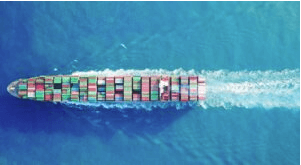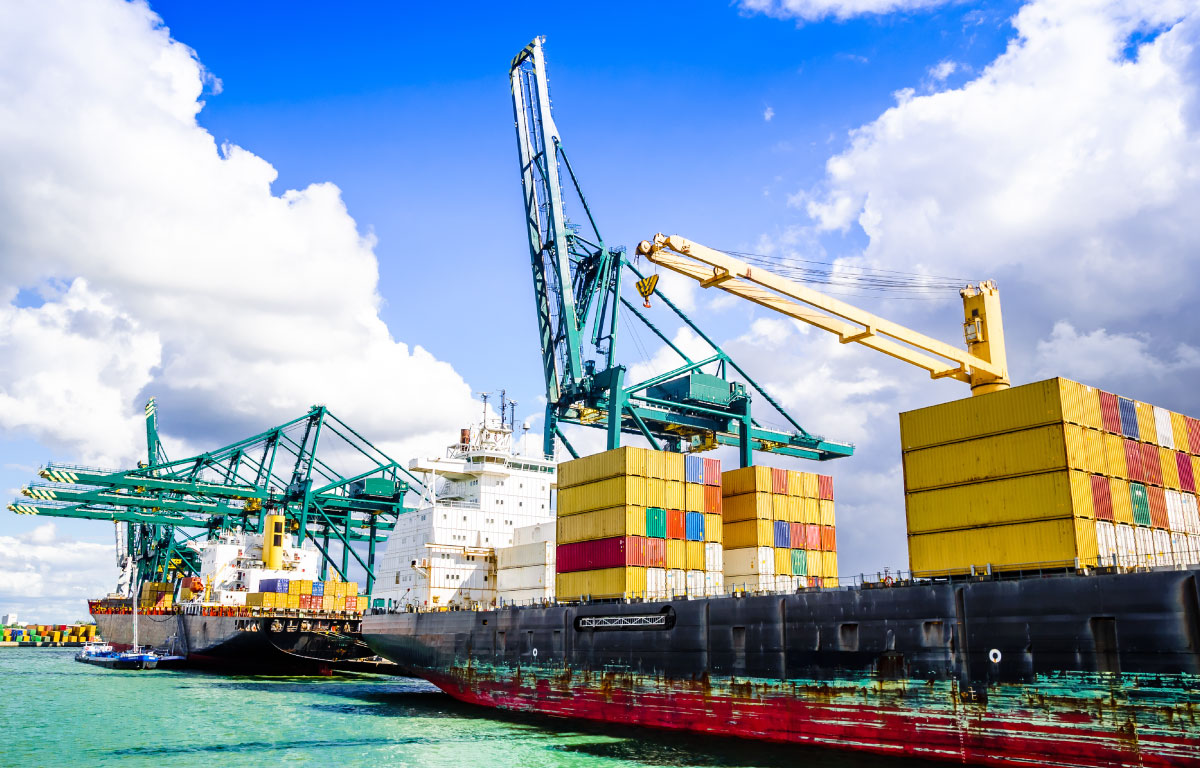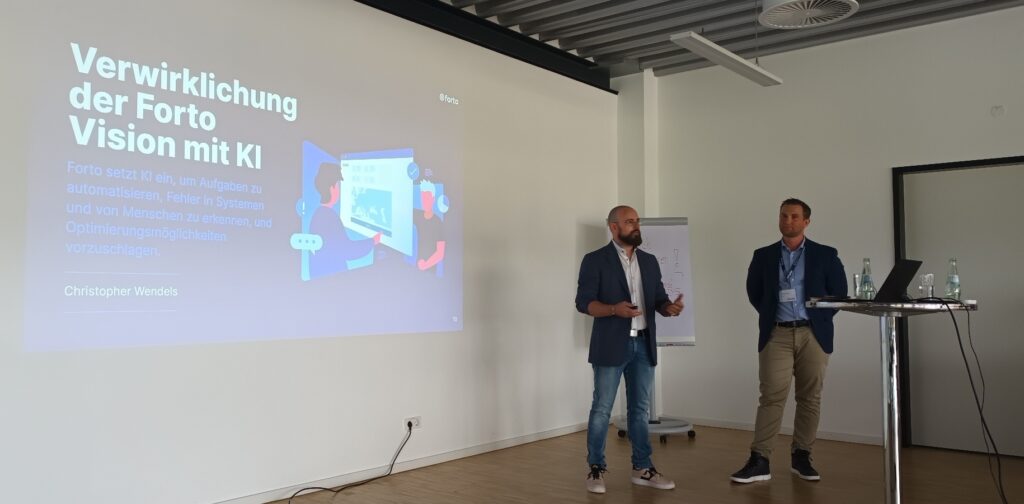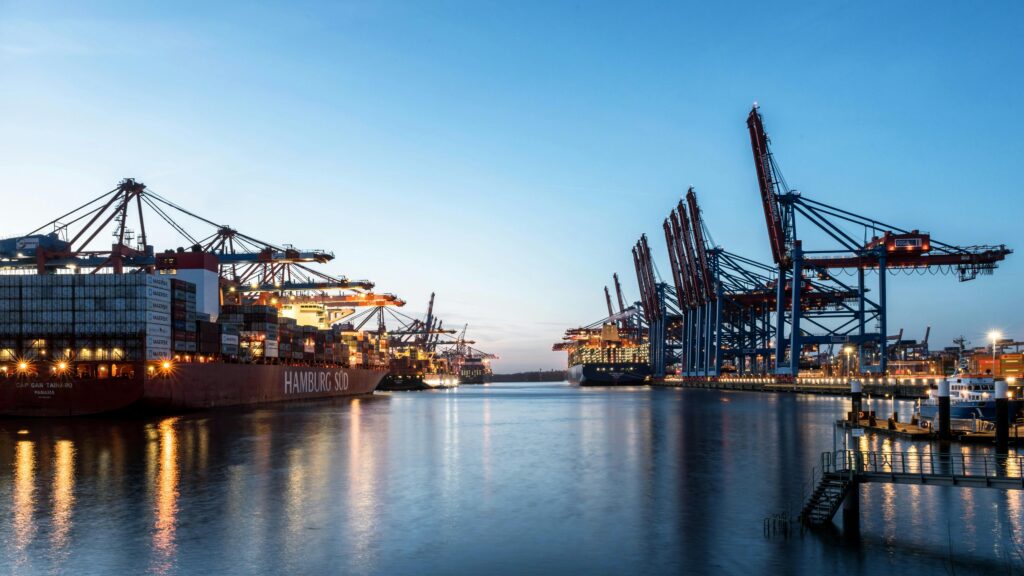From the 48-Hour Regulation at the Port of Hamburg to Barges as New Storage Solution
Since the beginning of the pandemic global supply chains have been disturbed. One impairment follows the next, and there seems to be little sign of a timely calming of the situation. On the contrary: In addition to the sea routes, the structures of the domestic areas are now increasingly affected by the domino effect. As a result of the congestion, the supply chains between the European North Sea ports such as Hamburg, Rotterdam or Antwerp and the inland are increasingly under pressure, which goes hand in hand with new arising approaches. This article will therefore cover what you should keep in mind right now for your logistics and will provide you with alternatives for your transport planning.
Background
Currently, no matter which way you look in the world: Containers are piling up in ports or cargo ships are waiting in long queues to enter. Without a doubt, there are plenty of problems the industry has to solve. The causes are manifold and interlinked, like the international supply chains themselves. On the one hand, temporary closures of major Chinese cargo terminals such as Yantain or Ningbo, based on positive Covid-19 cases, caused containers to congest at the ports; on the other hand, seasonal weather-related disruptions such as typhoons also contributed to ships departing late and containers being unhandled. Moreover, the queues at U.S. ports, with more than 50 vessels currently waiting for berths off Long Beach, are also contributing to the fact that a return to old norms seems a long way off. In addition, the industry, especially in the U.S., is suffering from a massive workers shortage, which enlarges the time it takes to load or unload a vessel. And even trucking companies, are still trying to close the large employment gap. However, demand is not waiting until the situation has recovered, but remains persistently high. The approaching Christmas season should only exacerbate this situation.
Consequences for the North Sea Ports
Cargo congestion is no longer a problem faced by individual ports. Equipment shortages and lack of ship space are the predominant picture in the industry and affect international trade lanes at all levels. Because the bottlenecks in sea trade are also producing an immense negative impact on shipyards and terminals, which are far exceeding their storage capacities.
As a result, truck and rail services are noticeably under strain and far beyond their capabilities. This is why we have been increasingly reading about problems at border stations, as recently at the external EU border between Belarus and Poland. Therefore, some service providers are already refusing to accept new containers without having reduced the existing backlog.
Barges as depot storage
If we look at some of the most important cargo ports in Europe, it will be evident how serious the extent of congestion is in these areas as well. The average waiting times for handling container ships are currently over 40 hours in Antwerp, and in some cases even over 160 hours in Rotterdam. An interim solution to the problem is now to use barges, as container depots, in order to temporarily store the boxes.
48-hour Regulation at the Port of Loading Hamburg
The container terminal at the port of Hamburg has now already had to drastically reduce the times of container acceptance to deal with the scope of delivery. Whereas until the first week of October export containers could still be dispatched within 48 to 72 hours prior to the arrival of the ship, now an acceptance period of only 48 hours applies to all upcoming ships.
A step that seems necessary in order to be able to manage the massive logistics backlog that has arisen as a result of the global problems in the U.S. and Asia. However, this regulation also means further complications in the organization of the supply chain for many distributors. For some retailers, the limitation of container acceptance may mean that cargo now has to be temporarily stored before the loaded full containers can be transported to the port for delivery. This is inevitably to the detriment of the goods and may also mean the incurrence of any additional costs.
Carriers Suspend Services
In order to avoid further container accumulations, some carriers are also already suspending initial services entirely until the situation calms down again. One of these services, for example, is the Maersk Eastbound regular starting from Hamburg and ending in Yantian. This service will now not call at Hamburg until further notice until the end of the year.
Your Options in this Situation
There is no doubt that the majority of global shipments are transported as sea freight. So what can be done when countless disruptions throw the schedule into disarray? First and foremost, we advise you to remain as flexible as possible in planning and to also consider alternative services.
- LCL transports: Be prepared for unexpected incidents and use LCL transports to have urgent goods in stock. A big advantage that argues in favor of LCL shipments is that this cargo is prioritized by shipping companies.
- Air freight: Even though you should currently also plan for slightly longer transit times with air freight, this transport mode is undoubtedly still the most reliable solution if time is breathing down your neck. Because cargo transportation by air is by far the fastest option.
- Alternative ports: Be as flexible as possible with the port of loading. Shipping from Bremerhafen or Wilhemshafen, for example, is still not subject to any restrictions. This means containers can be delivered seven days a week, 24 hours a day, without booking timeslots at the terminals.
Thanks to Forto’s digital platform and transparent access to real-time prices, we are glad to help you consider the various scenarios for your logistics and determine the best approach for you.
So if you are still deciding which transportation plan is best suited to your logistics needs in the current situation, we will be happy to advise you. Just contact your Forto account manager or send us an e-mail here.








